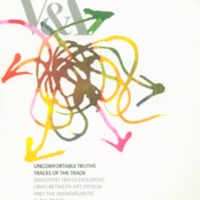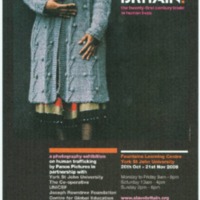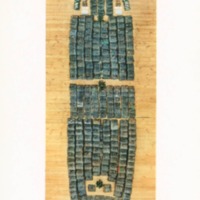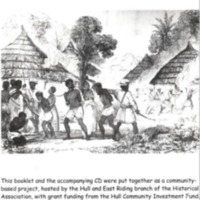Collection
Date
Location
Type
24 results
Remembering 1807
In 1807 Britain legally abolished the slave trade, although it continued to participate in and profit from the institution of slavery. In 2007 the British government committed public funds to mark the bicentenary of the Slave Trade Act. The Remembering 1807 project has collected and archived material relating to the many events and activities that took place during 2007. These records help us to locate and understand the place of slavery, the slave trade and its abolition in the UK’s public history, commemorative traditions and popular memory. Background to the collection...

Uncomfortable Truths
Uncomfortable Truths at the Victoria and Albert Museum sought to expose how embedded the transatlantic slave trade was within British culture during the 18th and 19th centuries through art and design. A series of five trails - 'Traces of the Trade' - explored the permanent collections on display…

Slave Britain: The 21st Century Trade in Human Lives
This photographic exhibition focused on human trafficking was produced by a partnership of Panos Pictures, Anti-Slavery International, Amnesty International, Eaves and UNICEF. Photographer Karen Robinson’s portraits and tales of women trafficked into prostitution explore the devastating impact on…

La Bouche du Roi
La Bouche du Roi was created by artist Romauld Hazoumé, who lives and work in the Republic of Benin, West Africa. The multi-media artwork is named after a place on the coast of Benin from where enslaved Africans were transported. It comprised 304 plastic petrol can 'masks', each representing a…

Songs of Slavery
The Songs of Slavery CD and booklet were produced by a community-based project, led by the Hull and East Riding branch of the Historical Association. The project was part of the Wilberforce 2007 initiative in Hull. Songs of Slavery recorded 19 songs relating to slavery, alongside six short…